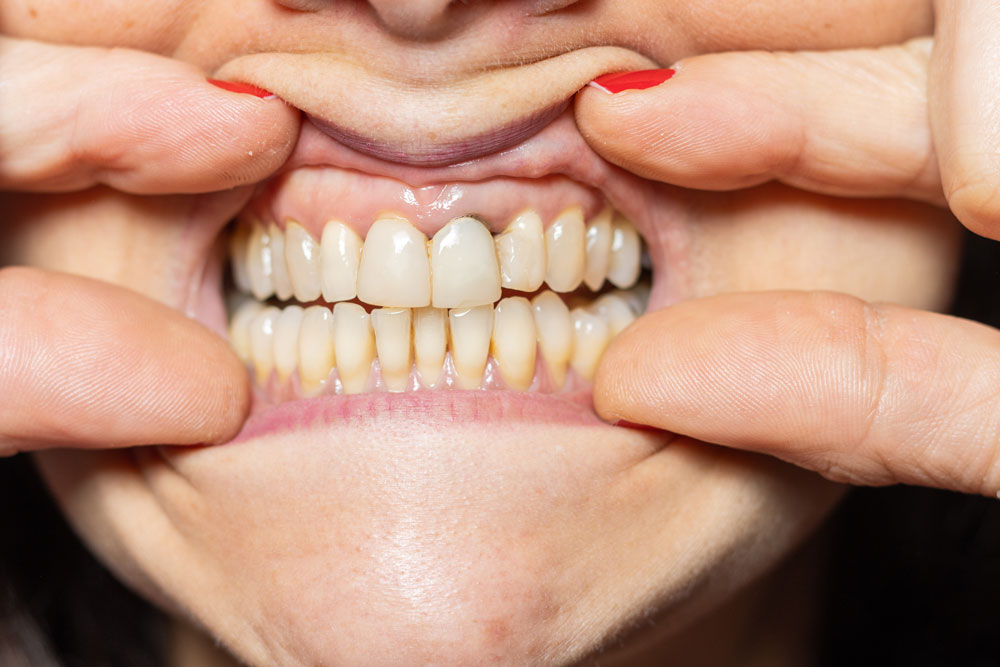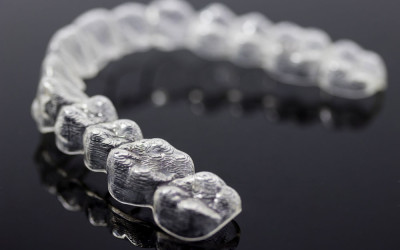What Is Periodontitis?

What Is Periodontitis?
- 26 June 2022
- 13842 views
Periodontitis is a dental disease that can damage the soft tissue around the teeth, causing loosening of the teeth or tooth loss.
This content is for informational purposes only and does not replace medical advice, diagnosis, or treatment. Please consult a healthcare professional for any health concerns.
Table of Contents
Periodontitis, which can be seen in all ages, is a common dental problem. It goes unnoticed by most people because it comes on gradually. Therefore, regular dental check-up is very important. Because in the future, surgical methods should be applied for the treatment of gingival recession.
What is Periodontitis?
Periodontitis is a common, but largely preventable, dental disease. It is also known as periodontitis. It damages the soft tissue around the teeth. Therefore, if left untreated, it can lead to loosening of the teeth and tooth loss.
What are the Causes of Periodontitis?
Periodontitis can occur due to many reasons:
- Periodontal diseases
- Wrong and hard tooth brushing
- Inadequate dental care
- Hormonal changes
- Genetic effects
- Grinding and clenching teeth
- Crooked teeth
- Having a lip or tongue piercing
- Using tobacco products
What are the Symptoms of Periodontitis?
Symptoms of periodontitis are as follows:
- Sensitivity in teeth
- Bleeding in the gums
- Space between teeth and gums
- Bleeding when eating hard foods
- The tooth appears longer than normal
- Redness or swelling observed in the gums
- Swollen or swollen gums
- Bright red, dark red or purplish gums
- Bad breath
- Painful chewing
- Gaps developing between teeth
What are the Complications That May Be Experienced With Periodontitis?
One of the complications caused by gingival recession is loss of teeth and jawbone. At the same time, bacteria that cause periodontitis can enter the circulatory system from the gum tissue and affect other parts of the body. For this reason, you should not be late for the treatment of periodontitis and if you are experiencing the above-mentioned symptoms, you should consult a dentist as soon as possible.
How to Prevent Periodontitis?
Some precautions you can take for periodontitis are as follows:
- The most effective way to prevent gingival recession is to take care of teeth cleaning from a young age. For this reason, you should give your children the habit of brushing teeth and explain the importance of oral hygiene.
- Brushing your teeth at least twice a day and flossing at least once are the best practices for oral hygiene. It is best to use floss before you brush your teeth.
- You should have a balanced and healthy diet.
- In order to prevent the problem of periodontitis, you should have your teeth cleaned once a year and go to the dentist regularly.
- The use of tobacco products increases the possibility of developing periodontitis. Therefore, you should stop using tobacco products.
How Is Periodontitis Treated?
For the treatment of gingival recession, the degree of the disease should be checked first. In other words, mild gingival recession treatment is not the same as advanced gingival recession treatment.
Mild gingival recession treatment is performed by deep cleaning of that area. In this cleaning, plaque and tartar on the surfaces below the gum line are cleaned. This makes it difficult for bacteria to adhere. If necessary, antibiotics can also be prescribed after cleaning.
In advanced gingival recession, bone loss and very deep pockets occur. Surgical gingival recession treatment is applied for problems that will not be affected by deep cleaning.
What are the Surgical Methods Used in the Treatment of Periodontitis?
The following surgical methods are used for the treatment of periodontitis.
- Open flap operation: The affected gingival tissue is folded back and harmful bacteria are removed from the pockets. Then the gingival tissue is firmly fixed on the root of the tooth.
- Guided tissue regeneration: If the bone supporting the teeth has been destroyed as a result of gingival recession, this method is preferred to reconstruct the lost bone and tissue.
- Soft tissue graft: There are different types of soft tissue grafts. However, the most commonly used is the connective tissue graft.







